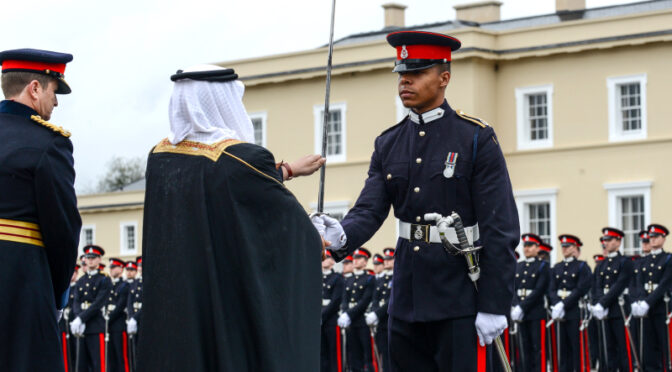Article published in The Daily Telegraph, 15 April 2016. © Richard Kemp
William Roberston, a servant boy and the son of a tailor, enlisted as a Private at 17 and ended up a Field Marshal, the most senior rank in the British Army. He served at its head in the First World War, as Chief of the Imperial General Staff.
Robertson’s story is unique; but the history of the British Armed Forces is replete with men and women from the humblest of backgrounds who have defied the odds to achieve the most remarkable success.
Kidane Cousland, from a council estate in Tottenham, who left school at the age of 15 barely able to read, and also originally joined as a Private, is a shining example. Yesterday he won the Sword of Honour, awarded to the top officer cadet at Sandhurst. By any measure this is a remarkable achievement. To win the sword, Cousland not only beat the 200 members of his intake on the world’s most demanding leadership course, but also the many hundreds of other applicants who failed even to reach the formidable front gates of the Royal Military Academy.
Sandhurst’s motto is “Serve to Lead” and it is that ethos of service among officers towards their juniors that makes the British Army unique and provides people like Cousland with opportunities rarely found in any other walk of life. I have no doubt that, like the young William Robertson 128 years before him, Cousland was encouraged to strive for a commission by the officers in his regiment and his comrades in the ranks.
For many recruits, some as young as 16, the Army is their first proper family, and their instructors the first people to take any real interest in whether they sink or swim. Contrary to the screaming, shouting image favoured by TV documentary makers , staff at basic training centres care deeply about their recruits. They make enormous efforts – often in their own time – to encourage them to succeed. This is a matter of personal and professional pride and also because they know that the lives of their young charges may soon depend on the standards they have trained them to.
Not all make the grade, but those that do quickly develop a comradeship unknown outside the Forces. They become part of a tight-knit band of brothers, which provides a confidence and determination to contribute and succeed that in many goes against their upbringing.
Virtually every close relative of a soldier in my regiment, the Royal Anglians, had done time in prison. He would have followed the same path had not his attention been caught one day by the display in an Army recruiting office window. Instead he gained the top non-commissioned rank in the Army and devoted himself to fighting for his country and inspiring others to succeed.
The leadership and dedication of men like this paves the way for young soldiers such as Kidane Cousland to realise their extraordinary potential and to contribute so much to the defence of our country.
Picture: Defence Imagery. © Crown copyright

